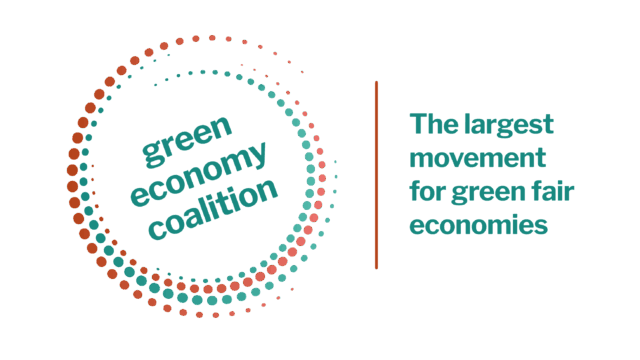
There are many glimpses of a green economy emerging all over the globe. The transition is already underway. Our question for month's update, and one of our five themes of change, is - how can we scale-up the transformation to resource efficient industries that generate jobs and decent work?
From an environmental perspective we know that food, housing, transport and energy are the four most materially demanding and polluting sectors. Their impacts can easily be mapped onto the nine planetary boundaries: food production requires land use changes, biodiversity loss, nitrogen loading and fresh water extraction; energy is the most significant contributor to carbon; housing (and construction) is the biggest user of materials, a driver of land-use change and a significant emitter of co2; while transport is a big carbon emitter, has a key role in land use change and is materially demanding.
The good news is that we are seeing considerable innovation in all of these sectors. Most progressive large companies have already started to look at their own production facilities and are now working with their supply chains. More transformative concepts such as bio-mimicry, cradle to cradle, closed loop, zero waste, industrial ecology and community energy systems are attracting a lot of interest; and there are numerous companies founded on re-use or sharing from ebay, Zipcar, Zookal to Skillshare, Streetbank and Zopa. There are also some valuable innovations occurring in executive education including Exeter University’s One Planet MBA.
However, it is fair to say these innovations do not yet represent a tipping point. They are the work of far sighted individuals, organisations and cooperatives but do not yet represent the mainstream. To take these solutions to scale we need an enabling economic environment. It is here that we turn to policy makers.
The challenge is this: the externalities created by companies - or, for that matter, nation states - in their pursuit of self-interest can seem rational at the local, country and even regional level. But at a global level, in a closed system, externalities are costs. What is rational at a company or nation state level is irrational at a global level.
Rio+20 is the first global debate on a new economy; one defined by environmental limits and the need to share resources and opportunities more fairly. The likely outcomes from Rio appear to be loose voluntary commitments to national roadmaps or action plans, support for Sustainable Development Goals, a global knowledge-sharing platform, some support for sustainable agriculture and the UN’s objective on Sustainable Energy for All, and the growing recognition of the opportunities presented by green cities.
This will be a big step forward but it will not be enough. It suggests that building resilience in food, energy, homes, communities and more broadly in our national economies will be the agenda that will emerge most strongly post-Rio, in a competitive national and company context. However, to move quickly to the new economy, and to ensure a just transition and the better management of our natural world, we will need to govern global markets. This will require multilaterism.
This means we must better articulate the case for shared action and mutual self-interest. The coalition is tackling this by creating a new narrative called ‘Prosperity for people, opportunity for business and resilience and recovery for national and global economies’. We invite you to contribute to this narrative and, specifically this month, to work with us to build the case for sector transformation.
Oliver Greenfield, Convenor, Green Economy Coalition


